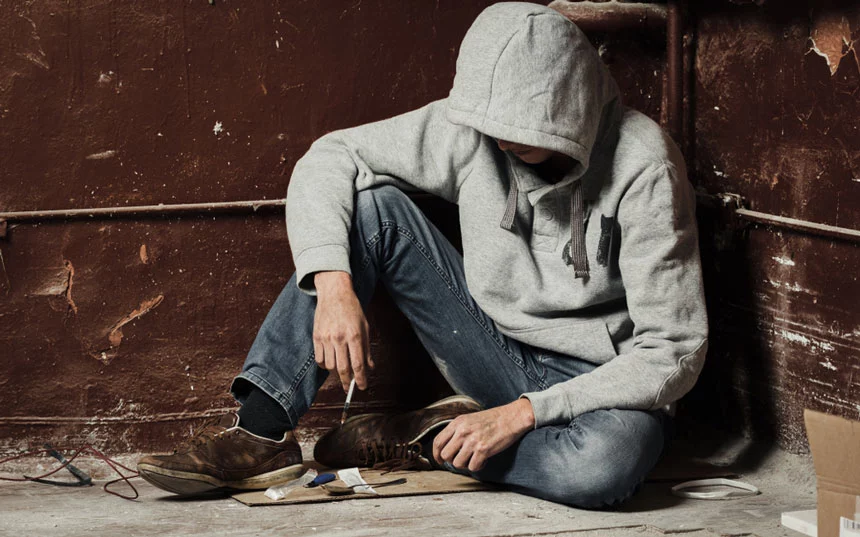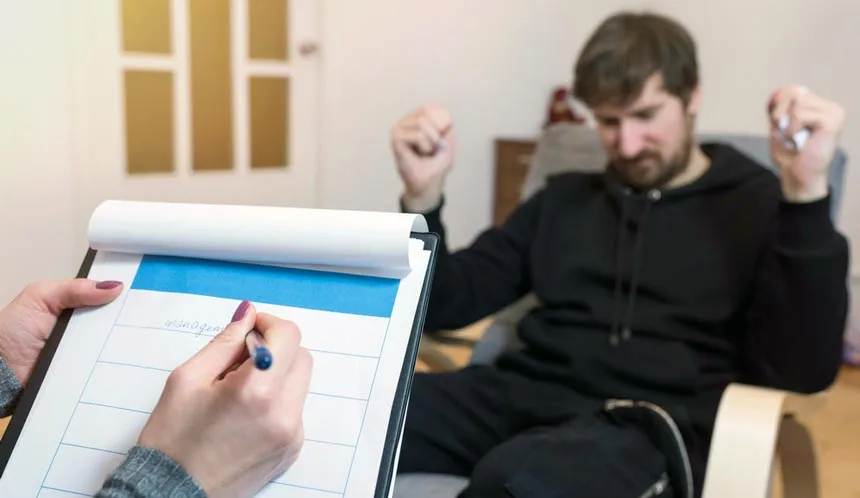What is Heroin?
Table of Contents
- What is Heroin?
- How is Heroin Used?
- So: Why is Heroin So Addictive?
- How Long Does it Take to Become Addicted to Heroin?
- What are the Signs and Symptoms of Heroin Abuse?
- Is it Possible to Overdose on Heroin?
- Why is Heroin So Addictive: The Importance Of Rehab
- Getting Heroin Out of Your System
- Benefits of Professional Treatment for Opiate Abuse and Addiction
- Get Help With Find Addiction Rehabs Today!
- Medically Reviewed By
Heroin is an opioid drug that is made from morphine. While morphine is a natural substance that is derived from opium poppy plants found in Asia and Latin America. Heroin is highly addictive and is one of the leading drugs associated with substance abuse in the United States.
This drug is a central nervous system depressant, acting on the same receptors in the brain as other opioids that may be prescribed to help relieve pain. However, heroin is an illicit drug, and according to the National Institute on Drug Abuse (NIDA), a high risk for opioid addiction.
Keep reading to learn answers to why is heroin so addictive, and how to find effective forms of treatment for heroin use!
How is Heroin Used?
Regular heroin is most commonly found in the form of a white or brown powder through the illicit drug market and is usually mixed with additives like sugars, starch, and even powdered milk. It can also be sold as a black, sticky substance known as “black tar heroin.”
This type of heroin is made through an unrefined processing method, which can result in this already dangerous drug becoming riddled with impurities. When using black tar heroin, most people will dissolve the drug into a liquid base, before injecting it directly into their bloodstream.
Heroin may also be sold as granules or tiny pieces, which can resemble rocks. Most commonly, heroin is used by either injecting, snorting, or smoking this substance.
Depending on a person’s method of drug use, a heroin high can last anywhere from three to five hours, and produce side effects such as:
- Intense pleasure and euphoria
- Reduced brain function
- Heavy limbs
Some people may choose to mix heroin with other substances, such as fentanyl or even a new synthetic opioid drug called Iso, that can produce a more intense or prolonged high. This, of course, is strongly discouraged, as mixing heroin with other drugs can have dangerous side effects.
So: Why is Heroin So Addictive?
Like other opioid drugs, heroin binds to opioid receptors in the brain which can control feelings of physical pain and pleasure in the body. The brain already produces its own natural endorphins in response to experiencing pain or injuries.
Of course, there may be cases where someone is unable to produce enough of these endorphins on their own. In these cases, they will be given prescription opioids to help deal with chronic or extreme pain.
While these medications may be able to make all the difference in a struggling individual’s pain levels, these are highly controlled prescriptions, which will likely not extend over long periods of time. This is because, over time, the body will become tolerant of the prescribed opioid.
Someone who has previously been prescribed an opioid but is unable to get an extended prescription may turn to heroin as a means of escaping their chronic pain. In other cases, an individual may begin abusing this drug as a means of managing emotional pain or distress.
When Your Opioid Receptors Develop a Tolerance
Like with prescribed opioids, taking heroin too many times or on a regular basis will cause your body to form a tolerance to this drug. Once this happens, you will begin to become dependent on the substance, and have to use it more frequently in order to achieve the desired effects.
Heroin’s cheap price and generally easy accessibility has also made its abuse more common. Once addicted, many heroin users will find it difficult to stop using.
This is because, once they have become dependent, attempting to quit heroin will cause them to develop withdrawal symptoms.
Opioid withdrawal symptoms can be extremely difficult to deal with, and may even be life-threatening in extreme cases. This is why it is strongly recommended that you seek out professional addiction treatment for heroin addiction if you are struggling with this opioid use disorder.
How Long Does it Take to Become Addicted to Heroin?
While most people are aware that heroin can be a dangerous drug, many of them do not realize just how quickly a dependence on this substance can form. The signs and symptoms of heroin addiction can happen very rapidly. Unfortunately, once a heroin use disorder has been developed, overcoming one’s substance abuse can be very difficult.
While everyone is different and the exact timeline for an addiction to form can vary, this can happen within a few weeks, or even as soon as after only one time using this drug.
There is also the issue that an individual can become physically and psychologically addicted at separate rates.
Overall, because heroin is such a dangerous drug, it should be assumed that even one use can lead you down a path of dependence and addiction. This means that the best way to avoid becoming addicted to heroin is to avoid using it altogether.
What are the Signs and Symptoms of Heroin Abuse?
There are many ways that you can recognize if you or a loved one is struggling with heroin addiction. Some of the most common signs that someone is currently feeling the effects of heroin include:
- Slurred or slow speech
- Pinpoint pupils
- Flushed skin
- Poor attention span
Long-term heroin use will often lead to more serious physical and mental health problems, as well as changes to the chemical makeup of the individual’s brain. Some of the most common signs and side effects of heroin abuse include:
- Depression
- Chronic constipation
- Skin infections
- Constant itching
- Persistent nausea and vomiting
- Lung infections (more common in those who smoke heroin)
- Collapsed veins and damaged blood vessels (common with intravenous drug use)
- Memory loss
- Kidney or liver disease
- HIV and other blood-borne diseases
Is it Possible to Overdose on Heroin?
As with most illicit drugs, overdosing is a very real and very dangerous side effect of heroin abuse. Taking too high a dose of heroin, or mixing this substance with any other drug are two of the most common causes of a heroin overdose. The dramatic rise in opioid overdose deaths in the US has been fueled in large part by the addition of fentanyl to most heroin, and the danger of fentanyl overdose is, unfortunately, always present.
For example, many people will mix heroin with crack cocaine to enhance the euphoric effects of both drugs. Because of how easily a heroin overdose can occur, it is important to know how to recognize the signs and symptoms of this condition. These include:
- Shallow or labored breathing
- Pale or blue-tinted skin, lips, and fingernails
- Pinpoint pupils
- Unconsciousness
- Unresponsiveness
Why is Heroin So Addictive: The Importance Of Rehab
Someone who is struggling with heroin abuse will be at a higher risk of experiencing severe health problems and abusing other substances in the future.
This is why those with a heroin use disorder will be encouraged to seek out professional addiction treatment in order to overcome their addiction.
Professional rehabilitation programs can offer a variety of addiction and mental health treatment services that can help you or your loved one not only recover from your substance abuse habits but understand their underlying causes, as well.
Getting Heroin Out of Your System
For many people struggling with heroin abuse, the first step in their treatment process will be to undergo a medically supervised detox process. This can help eliminate toxins from their body, while simultaneously easing the withdrawal process and reducing intense cravings for heroin.
There are many withdrawal symptoms that may occur when attempting to recover from heroin abuse on one’s own, including fever, cold flashes and chills, muscle pain, nausea, vomiting, and even seizures. These can make maintaining abstinence feel impossible for many people.
Through undergoing a medical detox process, you will be able to receive constant supervision and support from a licensed professional while withdrawing from heroin.
This may also include the administration of certain medications, commonly suboxone and methadone, which can further help manage withdrawal and reduce drug cravings.
The ultimate goal of the detox process is to get you through the harder aspects of early recovery and prepare you for further treatment through other levels of care, such as inpatient and outpatient rehab programs.
Benefits of Professional Treatment for Opiate Abuse and Addiction
There are many benefits to getting professional help for your heroin addiction. The most important of which is that effective treatments will allow you to re-establish an independent sober lifestyle, and gain the ability to make healthy and mindful life choices.
Your personal relationships with family members and friends will also benefit from getting treatment, as most rehabilitation programs will teach you how to form healthy and supportive bonds and allow you to learn effective communication skills.
Having these sober support systems in place, whether through your loved ones or a trusted team of addiction specialists and counselors, can also help provide you with the emotional support you will need to stay dedicated to your recovery journey.
Choosing to seek out professional help allows you to stand up for yourself and take back control of your life from the hands of heroin addiction.
There are many rehab programs you may choose to seek out, including inpatient and residential treatment, outpatient services, and recovery support groups.
Of course, knowing which of these options will be right for you can be difficult. Speaking with your doctor or a Find Addiction Rehabs addiction specialist today can help you understand your treatment options and get started on your path to recovery, today!
Get Help With Find Addiction Rehabs Today!
Heroin addiction can be a hard and difficult experience to endure, but help is available. You are the only person who can make the choice to overcome your addiction and get the help you need.
Speaking with a Find Addiction Rehabs representative can help get you started on your sobriety journey by exploring treatment plans and rehab services that can address all of your care needs. Our team can help you find affordable and effective recovery programs nationwide that are the right fit for you!
Your drug addiction does not have to hold you hostage; call now to get started with your addiction treatment process and become a happier, healthier, substance-free you, today!
Deborah Tayloe is a freelance writer specializing in health and sciences. Deborah earned a B.S.Ed. in Secondary Education/English, accompanied by a Spanish minor. Her writing expertise allows her to craft engaging, impactful articles to help people be well.
In addition, she holds a fully accredited Certificate of Natural Medicine and is a certified Herbalist. Through her understanding of complementary medicine, Deborah helps medical professionals give people the information they need to embrace natural approaches to wellness.
When she’s not working, Deborah trains for 5K races and advocates for animal rights.





